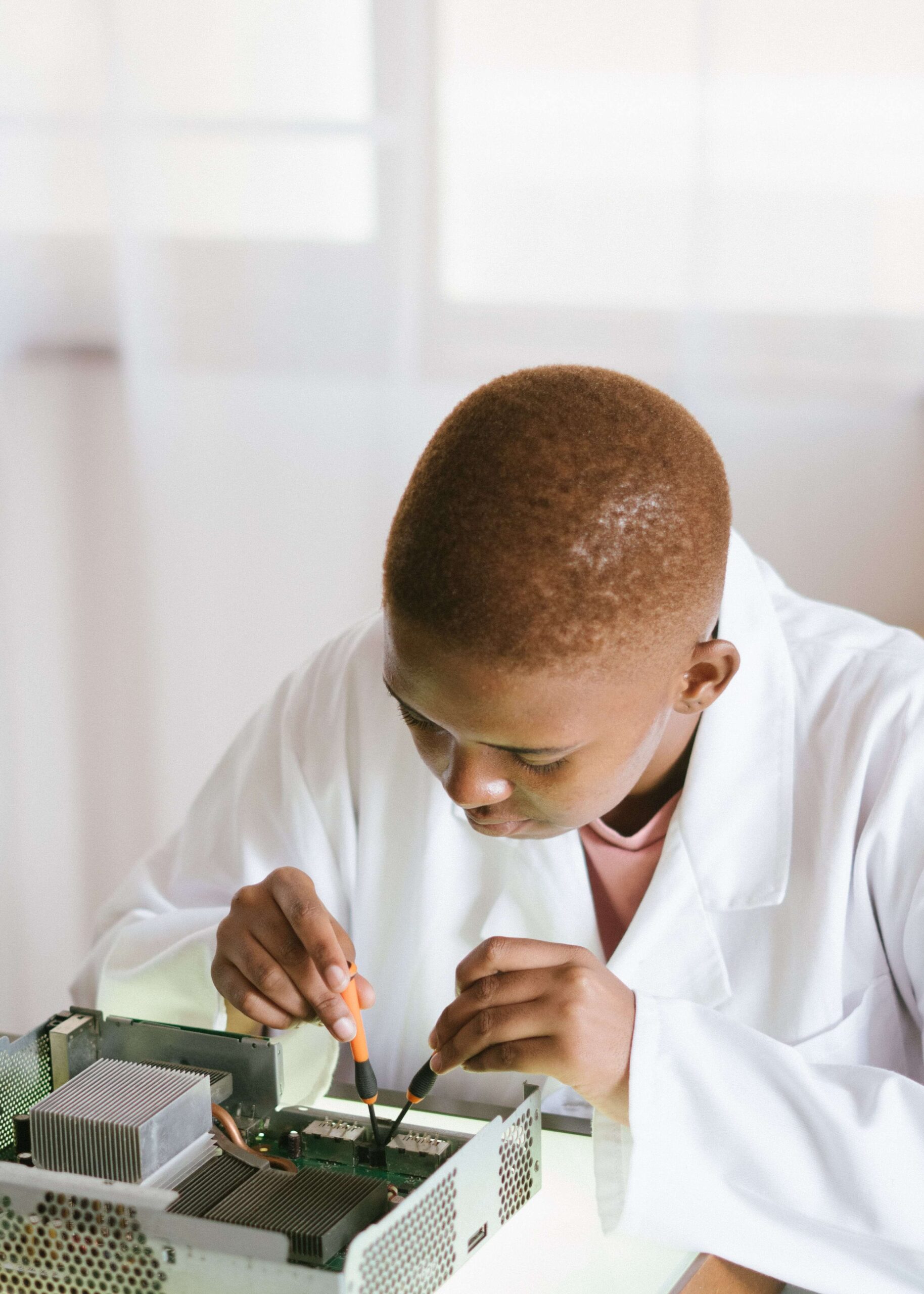
Our Mission
Our mission is to substitute the energy and resources that go into making computers with human resource to eliminate waste of people and planet.
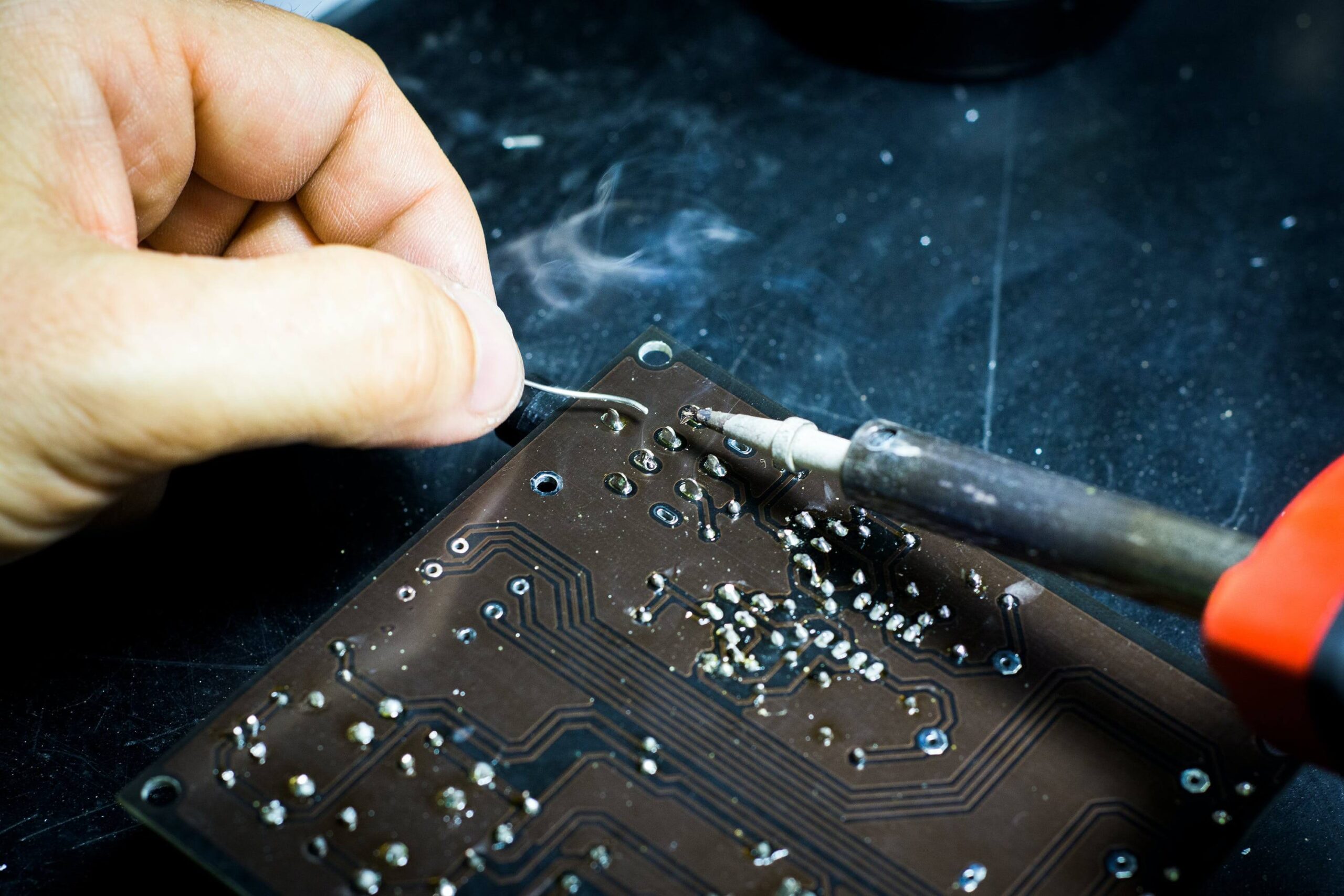
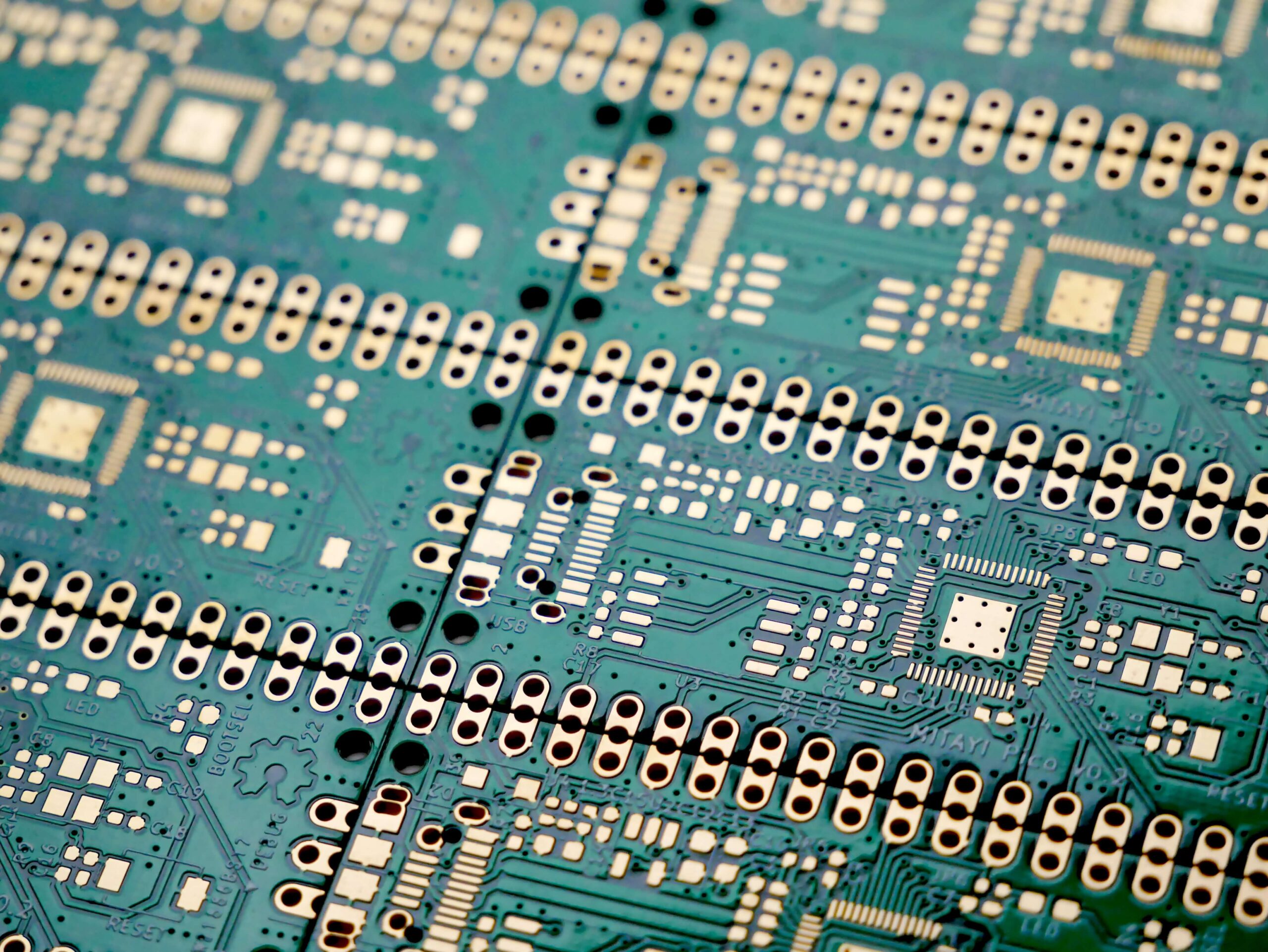
ReCognition Circular exists to tackle digital exclusion and eWaste
With skills and training, digitally excluded individuals can contribute to making IT more sustainable and to making their lives more fulfilling. We recognise that by working in the right circles we can make a difference to people, to planet and to the communities we live in.
Waste is at the root of many of our most pressing social and environmental issues. Climate change, social exclusion, biodiversity loss, youth unemployment, the scarcity of resources to power the green transition are all symptoms of an economic system that treats resources as things to be consumed and then disposed of.
We think the time for change is now. The place for change is the community. Everyone can make a difference.
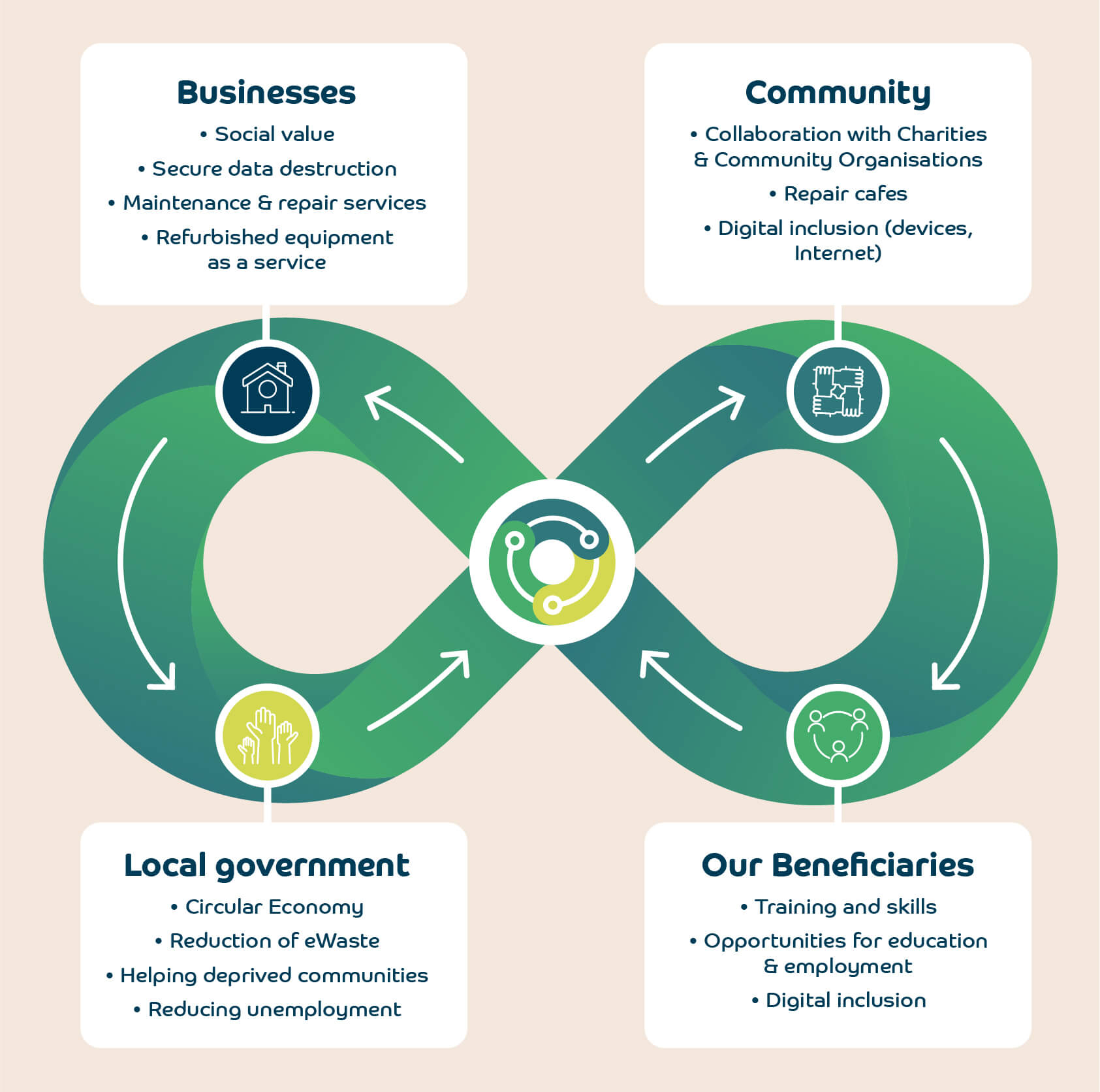
Where we Can Make an Impact
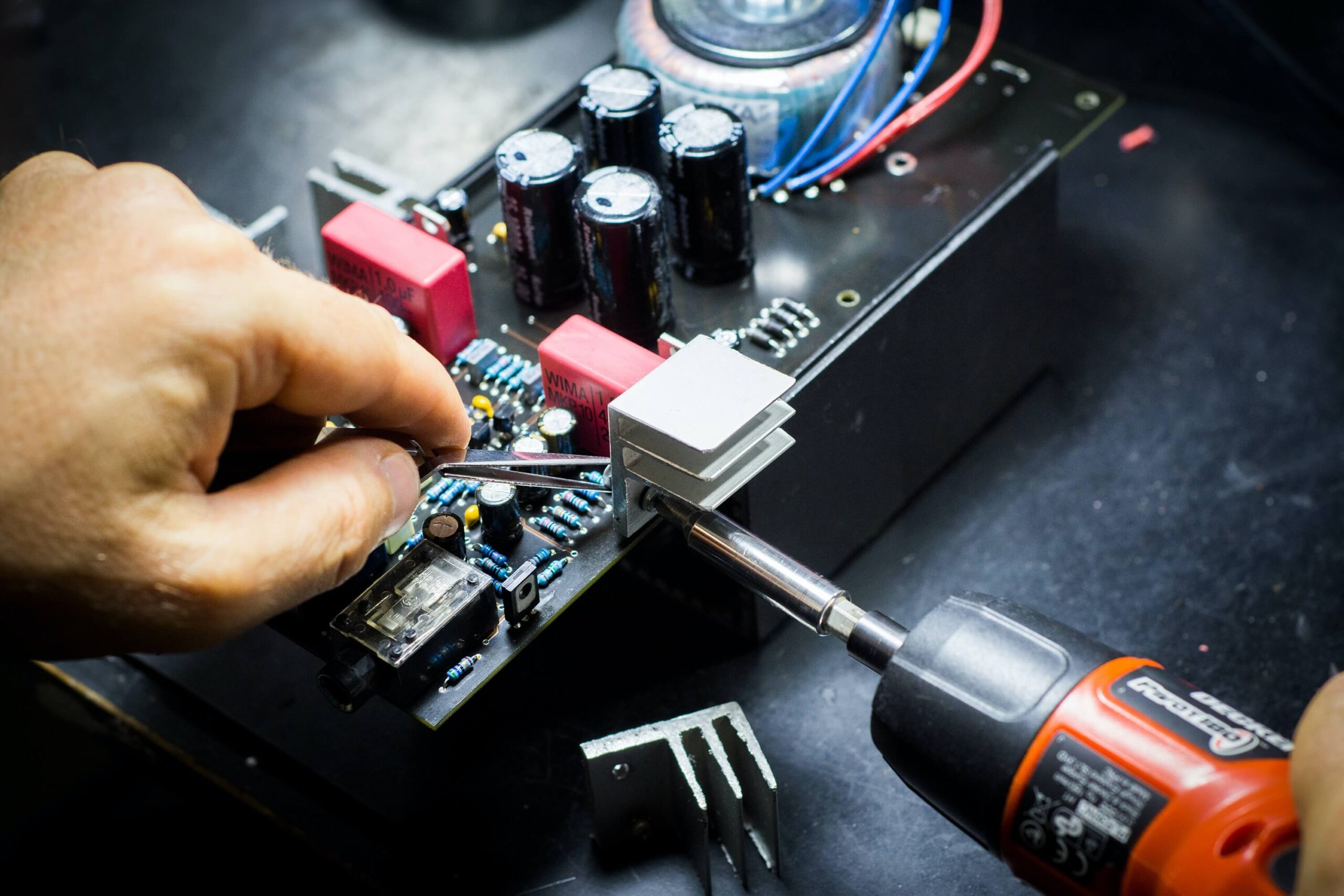
Our Goal – Stop Resources Being Wasted
25% of people in the West Midlands aged 16-25 don’t have access to a computer or tablet at home. A lack of digital skills put them at a significant disadvantage. By providing individuals who face digital barriers with skills and training in repairing and refurbishing IT equipment we can avoid waste of material, natural and human resources. The natural resources and energy that went into making our computers can be kept in use for as long as possible, reducing GHG emissions and environmental damage. Underutilised human potential can be realised. New skills and the opportunity to use them will give individuals financial independence and renewed purpose.
ReCognition Circular – Where we Can Make a Difference
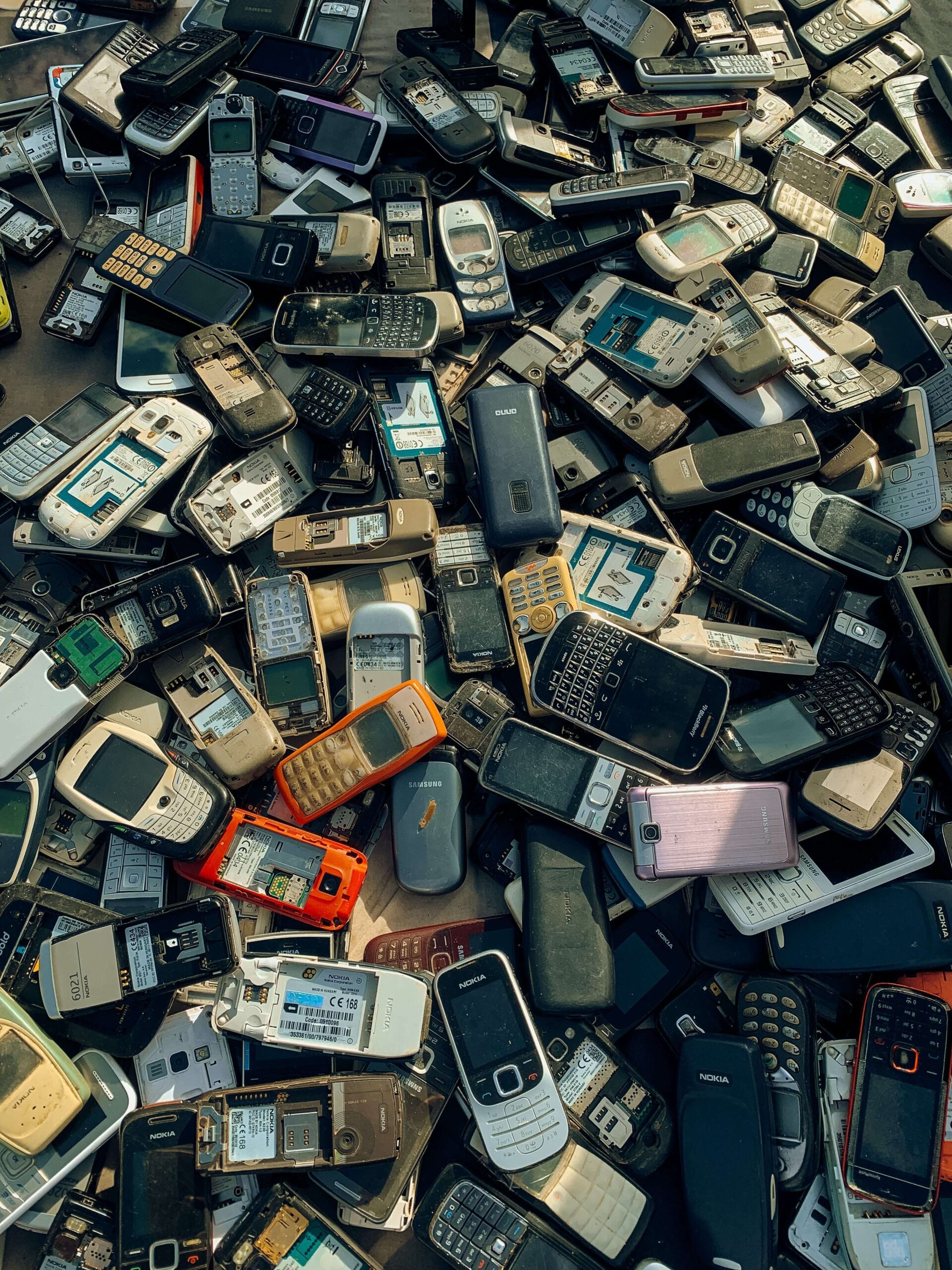
1.5m tonnes of e-Waste including computers and mobile devices is created in the UK every year
UK businesses retain their computers for only 5 years on average. There are over 2 unused devices for every person in Britain, yet there are over 8 million people in the country that don’t have access to any device at all. This isn’t sustainable and it isn’t fair. We’re here to do something about it.





